Dispatch: Notes on Separation and Conviviality
In her dispatch from ‘Non-Western Technologies for the Good Life’ Raluca Popa shares a series of notes reflecting on the notions, and practices, of separation and conviviality.
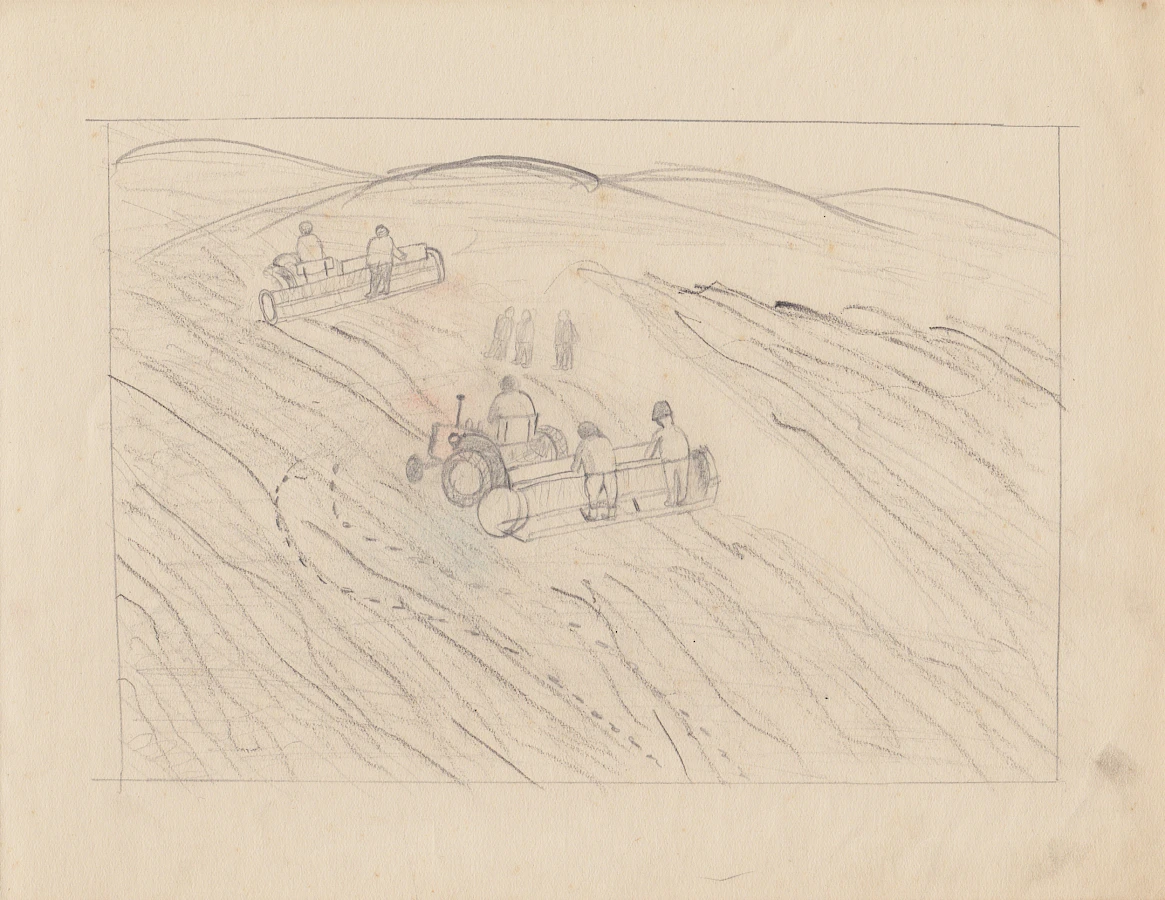
Ioan Popa, In the field (La câmp), c. 1965
On Separation and Conviviality
Once I started compiling a list of separation factors and conviviality factors, I noticed that there are many commonalities, factors that are valid in both situations. Illness creates separation, but also conviviality.
Drivers of separation
Illness: Forms of address that are acceptable or not >> What does it mean to be polite, to have common sense? What are you allowed to ask? When do you have to be quiet? Asking someone about their country of origin is frowned upon where I am. Nobody asks me where I come from anymore. But in areas further away from the European space, the question ‘Where are you from?’ has been asked with genuine joy and curiosity.
Where? When?
Separation occurs, for example, when a person disagrees with the opinion expressed by a majority, insists, but fails to be persuasive. A mass of like-minded people may seem threatening to an individual with a foreign opinion, and vice versa.
Drivers of conviviality
– Written text > Books > Library
– Illness (vulnerability? incompleteness?) > Hospital Ward
– Listening to the radio with others
Another thing is that a model of conviviality doesn’t have to appear all the time to count, to work. Once a month a group of people meet in someone’s house, have dinner together and listen to a radio program. Radio listening time, once a month, every month, is an example of conviviality. OK, so conviviality needs rhythm, a ritual. However, it also needs separation, distancing, but still as a variant of ritual. > Conviviality in one’s personal space. This is a space where one feels safe, but also invites others in, and they need to feel safe too.
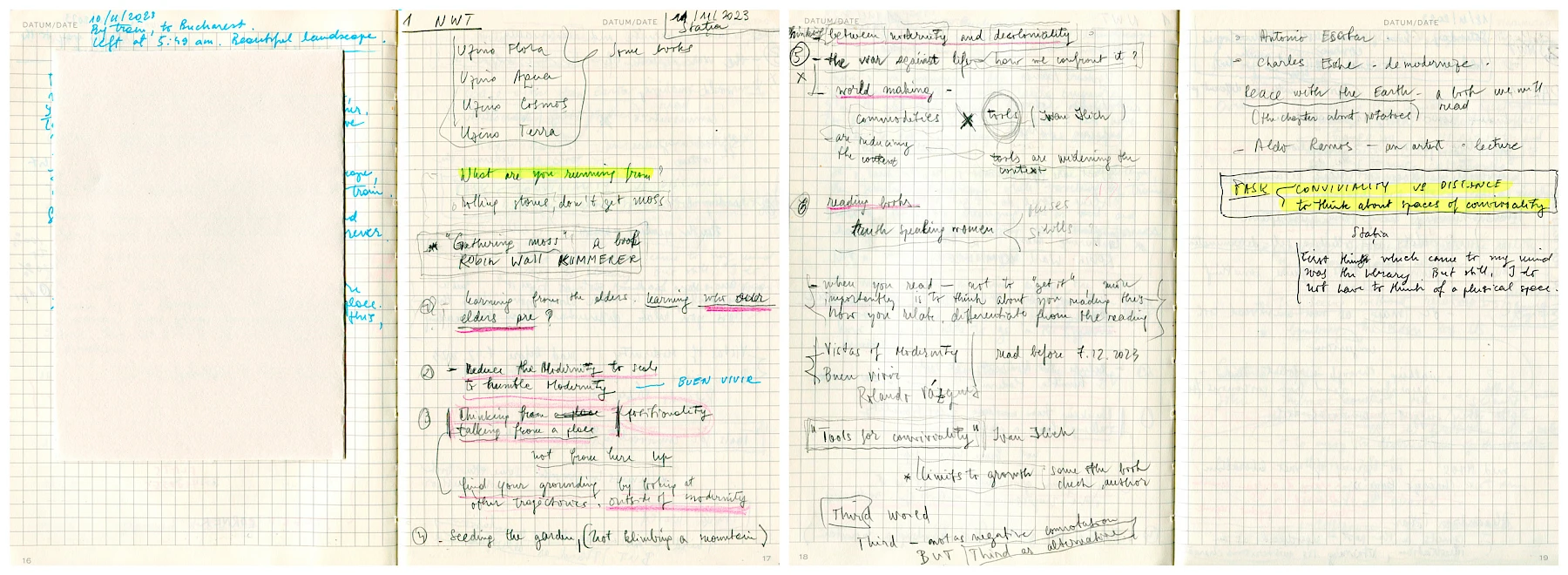
Conviviality within separation?
I thought that drivers of conviviality might be developed in a space that, taken in general, is the opposite of conviviality, a system that suggests separation. For example, if we think of a public space and, more specifically, a public transport vehicle, it is a place that produces conviviality; now, if I place myself in the central train station in Berlin, I see more models of separation than conviviality – cameras everywhere, voices repeating the same announcement, ticket vending machines with specific instructions, which sometimes appear incomprehensible. A vehicle, with its interior could produce conviviality. But seen from the outside, from a distance, that same vehicle could become an image of separation.
Bibl.: Deschooling Society, Ivan Illich (1971)
The human scale of convivial tools (like in small industries), objects made by hand.
Conviviality tools = have promoted and extended autonomy, including most hand tools, bicycles and phones > However, phones are no longer tools of conviviality. So conviviality is not a stable thing. It has to be nurtured.
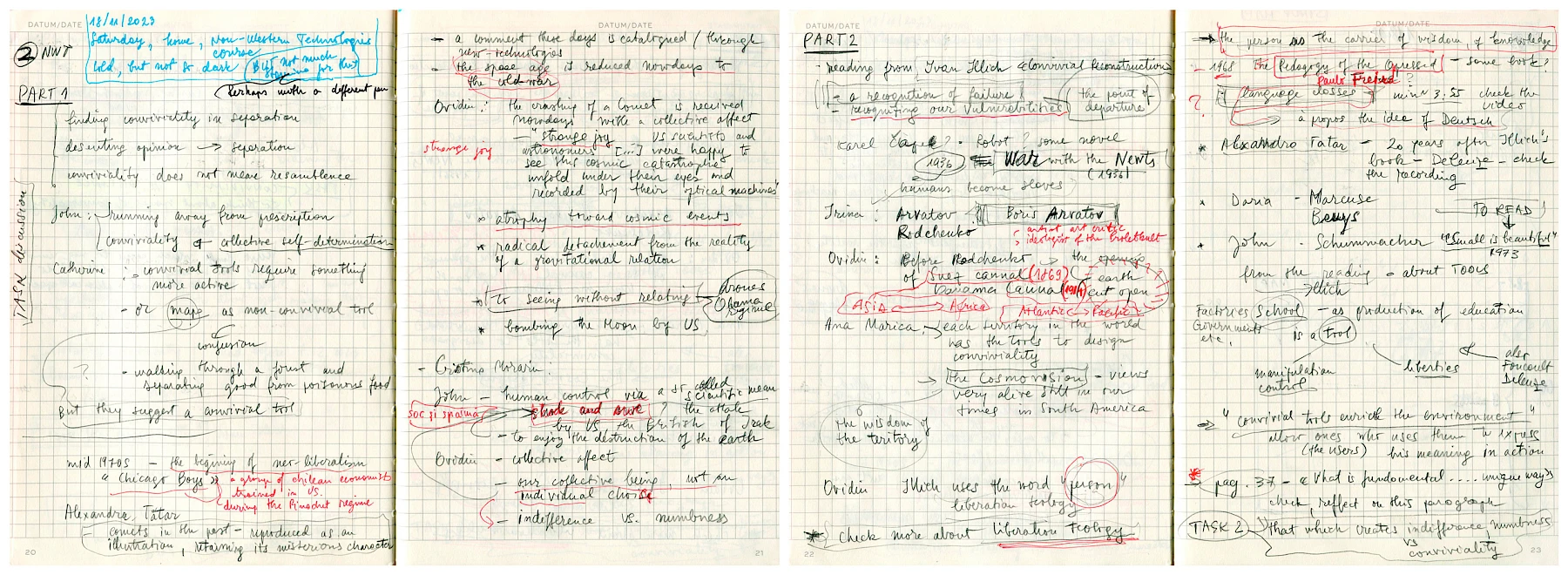
On Indifference and Conviviality
Affects and the relation to the tools of conviviality
Being, feeling shy.
Affects and the relation to the tools of non-conviviality
Feeling of isolation from others, distance from others. Condemnation to isolation. The desire to die, but even more destructive it seems to be the desire to disappear without others noticing. While to die also means that one was first alive and seen by others and occupied a space, and dying remains in the memory of others, the desire of an individual to disappear altogether, as if one did not exist, on the other hand, also means the cancellation of any coordinates of one’s existence.
On Wetiko (Greed) and Conviviality
Drivers of Wetiko
Greed, as an effect of naming things, which then goes to possessing them.
Collecting, gathering things can lead to greed.
Then what do we need >> a certain degree of randomness in our life? Less urgency?
Where? When?
Maybe wetiko (or greed) also occurs in situations where we are trying to choose a name, to name something. We draw a conclusion quickly and from a position of superiority, we know what is right and what is wrong. Do we need this finality in everything? An author I was reading a while ago writes that, in his view, the occasions when clear conclusions must be drawn are fewer than we would expect. Let’s argue for an incomplete space.
Drivers of Conviviality
Incompleteness
Perhaps poetry is a means to incompleteness
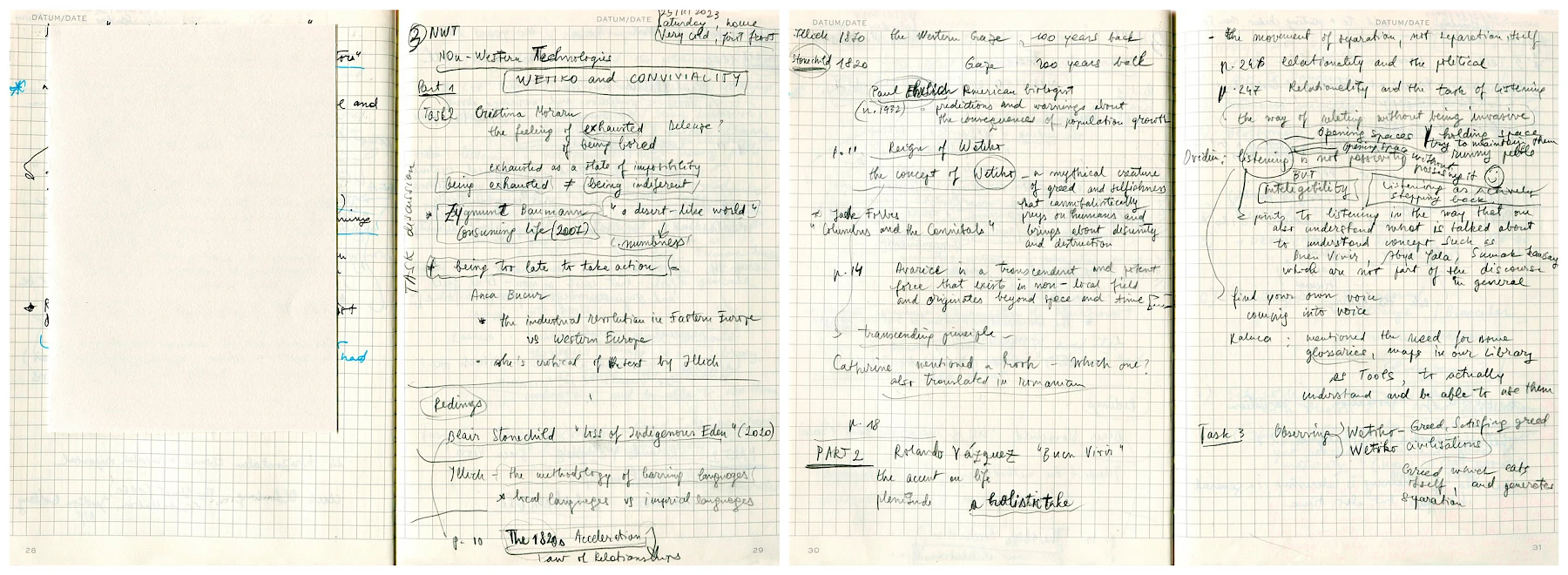
On Three Sisters and Conviviality
The seeds of time I find in nature, in the field, during a lunch break, on a blanket lying under the crown of a tree, in the shade, and on which three of us are found: me, my sister and my grandmother. It is one of many lunches in the field together. But only this one comes to mind with the greatest clarity. Sitting in the shade meant a break, after earlier in the day we have been working on the land. It was a time to sit together, have lunch and have a conversation. It was a conversation between a first and a third generation.
The seeds of time are found in this moment of pause, when I ate with my two loved ones. Without our awareness, the seeds of time also intertwined with the seeds in the soil at our feet that my grandparents had cultivated months before this picnic took place. Every time I set out on a walk among the fields, fields in foreign lands and cultivated by other hands and with other seeds, I am reminded of our lunch in the field. It seems that those distant seeds are still germinating, and germinating in other fields far from the original place, but now close to me. Could it be a chase, the seeds are coming after us, and they are sprouting at the point where we are now?
Later: Whenever I find myself in nature, and regardless of the seasons, the weather, I relive that moment and briefly experience feelings that, dare I say, are similar to those felt during that lunch break. But I do not have control over this state. I wish it would last longer. But it comes and goes fast like a sudden, passing breeze.
Perhaps reliving moments like the one I spoke of is a good thing and also it is a practical, meaningful thing to do nowadays. We might locate in the past of childhood, moments of fullness like this, and try to repeat them, and replicate them as close as possible to the original, to make room for them in our lives, in a weaving of time, and seasons.
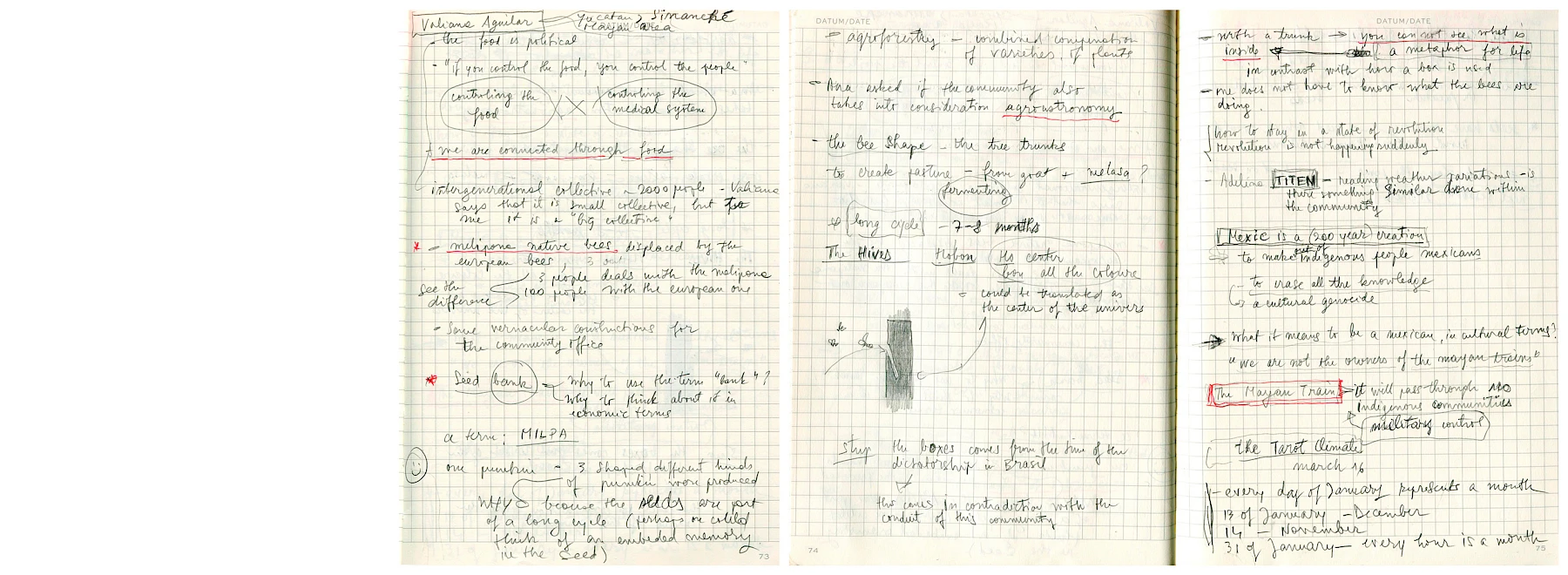
On the War against Life and Conviviality, and My Relation to Ancestral Food
If I’m looking for a trace of ancestry, the closest I can get is to the bread-making, by my grandmother and other women of the village (in Brasov County, Romania) and her neighbours. When it came time to bake, the women would gather in one of the houses and bake bread together in one oven. To distinguish between the different loaves, they would mark them. Baking was ceremonial and took too long for a child’s patience. It was ceremonial in the sense that there were steps to follow, meetings, preparation, and making the dough and the fire, of course. At the end, each of the children was rewarded with a miniature loaf of bread, which was called a ‘pup’. I remember that a similar ‘pup’ was also offered at the end of funeral ceremonies. Because it was a long process, many loaves were baked at once, to last for several weeks, and in the end the last bread was hard like a rock. Another thing that stuck in my mind was the way my grandparents used to slice this big hard bread. The bread was grasped with one arm and held like you would hold a child, while the other arm was used to cut the bread from the outside in, towards the body, the chest, the arm moving as if playing the violin. Perhaps the slicing of bread held in the arms is actually a natural consequence, if I think that people in the countryside spent most of their time in the field, where there was no table in sight, and ate sitting on the grass, in the shade of a tree.
Something Valiana Aguilar said last time stuck in my mind. She said that they were going to hold a celebration (a party) during the summer, but then immediately added that it was not simply a party, but a gathering of people in the community to exchange seeds etc. In other words, they meet to work together in a certain sense. This exchange of course also involves eating together and having fun. I reflected on this and remembered the baking of bread. My grandmother and her friends were certainly having fun while baking, but it wasn’t all fun. The feeling of good was intertwined with their bread-making effort.
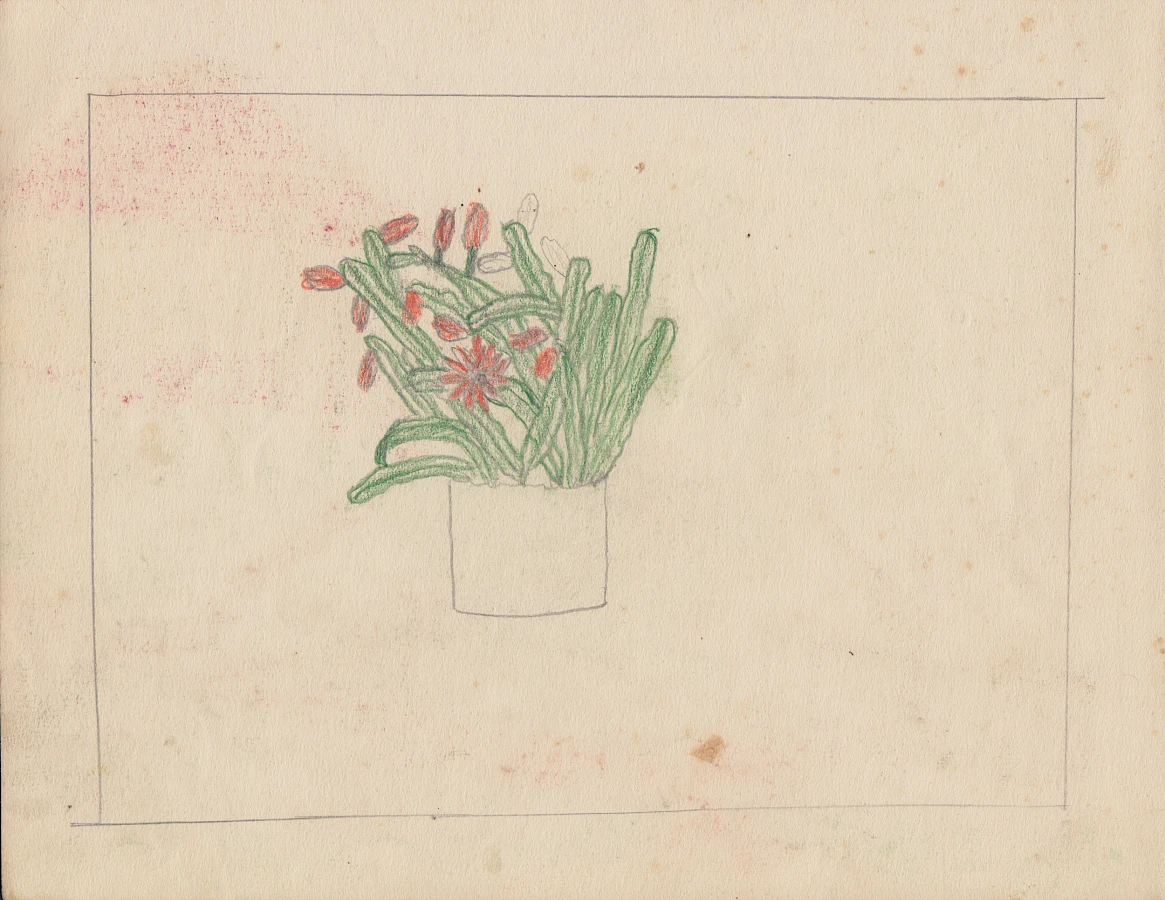
Ioan Popa, Flower in a pot (Floare în ghiveci), c. 1965
Related activities
-
–tranzit.ro
Non-Western Technologies for the Good Life
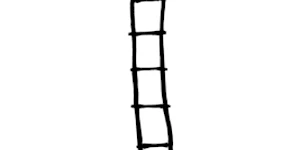
The experimental course ‘Non-Western Technologies for the Good Life’ (November 2023–May 2024) celebrates as its starting point the anniversary of 50 years since the publication of Tools for Conviviality, considering that Ivan Illich’s call is as relevant as ever.
-
HDK-Valand
Climate Forum I
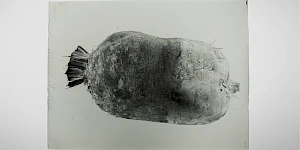
The Climate Forum is a space of dialogue and exchange with respect to the concrete operational practices being implemented within the art field in response to climate change and ecological degradation. This is the first in a series of meetings hosted by HDK-Valand within L'Internationale's Museum of the Commons programme.
-
–Van Abbemuseum
The Soils Project
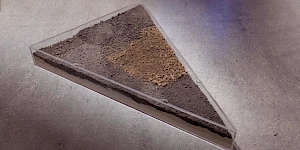
‘The Soils Project’ is part of an eponymous, long-term research initiative involving TarraWarra Museum of Art (Wurundjeri Country, Australia), the Van Abbemuseum (Eindhoven, Netherlands) and Struggles for Sovereignty, a collective based in Yogyakarta, Indonesia. It works through specific and situated practices that consider soil, as both metaphor and matter.
Seeking and facilitating opportunities to listen to diverse voices and perspectives around notions of caring for land, soil and sovereign territories, the project has been in development since 2018. An international collaboration between three organisations, and several artists, curators, writers and activists, it has manifested in various iterations over several years. The group exhibition ‘Soils’ at the Van Abbemuseum is part of Museum of the Commons. -
–MACBA
The Open Kitchen. The fermented seed, colonialism and extractivism
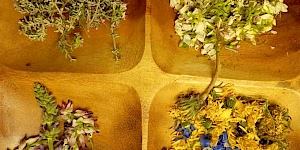
The MACBA Kitchen is a working group situated against the backdrop of ecosocial crisis. Participants in the group aim to highlight the importance of intuitively imagining an ecofeminist kitchen, and take a particular interest in the wisdom of individuals, projects and experiences that work with dislocated knowledge in relation to food sovereignty.
-
MACBA
The Kitchen: Workshop by Marina Monsonís
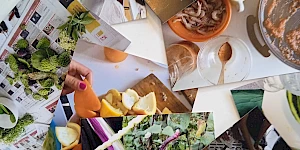
The Kitchen is a meeting place open to the participation of all, especially people and organizations that want to share their knowledge and experiences around the kitchen.
-
8 Sep 2023 –31 Dec MSN WarsawMulticultural Youth Center
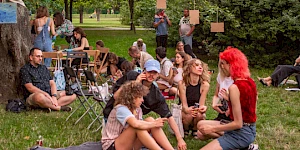
The Museum of Modern Art in Warsaw, together with the confederation of museums L'Internationale, is establishing a Multicultural Youth Center. This is a unique space for 16-24 year olds to explore and develop their creativity, make new friends and hang out in a friendly and supportive environment.
-
12 Apr 2023 –14 Apr MACBAWhere are the Oases?
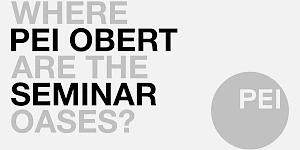
PEI OBERT seminar
with Kader Attia, Elvira Dyangani Ose, Max Jorge Hinderer Cruz, Emily Jacir, Achille Mbembe, Sarah Nuttall and Françoise VergèsAn oasis is the potential for life in an adverse environment.
-
2023 – 2024 MACBAMobile Garden. A Place to Meet
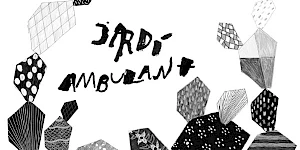
An open space, a social space. How could the Museum be more open to the needs of the neighbourhood?
-
2023 – 2024 Museo Reina SofiaSchool of Commoning Practices
This exchange programme gathers different schools organized by volunteers and migrant communities in Athens (Open School for Migrants) and Madrid (School of Rights, Escuela de Español and Situated mediation School) in order to share their knowledge, exchange strategies and reflect on the experience of working together with migrant communities.
-
1 Sep 2023 –30 Jun 2024 Museo Reina SofiaTeam of Teams
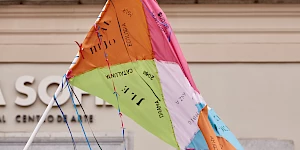
This project researches citizen participation as a fundamental pillar in the creation of community.
-
1 Apr 2024 –21 Dec 2025 Museo Reina SofiaSustainable Art Production
The Studies Center of Museo Reina Sofía will publish an open call for four residencies of artistic practice for projects that address the emergencies and challenges derived from the climate crisis such as food sovereignty, architecture and sustainability, communal practices, diasporas and exiles or ecological and political sustainability, among others.
-
9 Dec 2023 M HKASUPERHOST | Club Antena. Intimate listening and dancing experience
with Nele Möller, Farida Amadou, Le Réalism, Céline Gillain, Roberta Miss, Elena Colombi
CLUB ANTENA is an intimate listening and dancing session with a lecture, concert, performance, catering and DJ sets, exploring what it means to listen with our bodies.
-
24 Jan 2024 Institute of Radical ImaginationMSU ZagrebRed, Green, Black and White
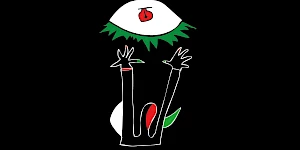
A performative inquiry by Institute of Radical Imagination and MSU Zagreb
-
2023 – 2024 Tongue and Throat Memories
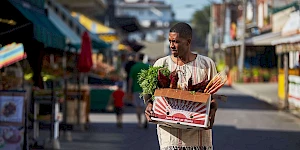
On hospitality and conviviality through food
Knowledges and convenings
Cooking Sessions -
24 Aug 2024 –30 Aug Moderna galerijaZRC SAZUSummer School: Our Many Easts
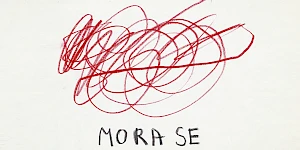
Our Many Easts summer school is organised by Moderna galerija in Ljubljana in partnership with ZRC SAZU (the Research Centre of the Slovenian Academy of Sciences and Arts) as part of the L’Internationale project Museum of the Commons.
-
15 Feb 2024 –15 Mar Moderna galerijaZRC SAZUOpen Call – Summer School: Our Many Easts

Our Many Easts summer school takes place in Ljubljana 24–30 August and the application deadline is 15 March. Courses will be held in English and cover topics such as the legacy of the Eastern European avant-gardes, archives as tools of emancipation, the new “non-aligned” networks, art in times of conflict and war, ecology and the environment.
-
4 Feb 2024 –10 Mar MSU ZagrebVan AbbemuseumModerna galerijaZRC SAZUOpen Call – School of Common Knowledge 2024
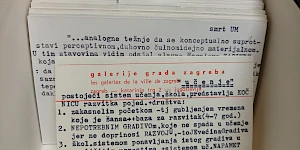
MSU (Zagreb), Van Abbemuseum (Eindhoven), MG+MSUM (Ljubljana), ZRC SAZU (Ljubljana) and L'Internationale invite applications for the new School of Common Knowledge (SCK) to be held in Zagreb and Ljubljana 24–29 May 2024. The School of Common Knowledge draws on the network, knowledge and experience of the L’Internationale museum confederation. Its ambition is to be both nomadic and situated, looking at specific cultural and geopolitical situations while exploring their relations and interdependencies with the rest of the world. The SCK is built on the basis laid by the Glossary of Common Knowledge project initiated by Zdenka Badovinac and Moderna galerija (Ljubljana) and continues its co-learning methodology.
-
17 Apr 2024 –20 Apr Institute of Radical ImaginationGathering into the Maelstrom
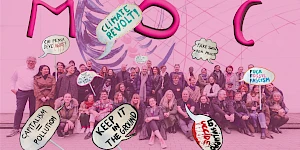
‘Gathering into the Maelstrom’ in Venice at Sale Docks is a four-day programme curated by Institute of Radical Imagination (IRI) and Sale Docks.
-
24 May 2024 –30 May MSU ZagrebModerna galerijaZRC SAZUSchool of Common Knowledge 2024

School of Common Knowledge draws on the network, knowledge and experience of the L’Internationale museum confederation. Built on the basis laid by the Glossary of Common Knowledge, a project initiated by Zdenka Badovinac and Moderna Galerija in Ljubljana, it continues its co-learning methodology. Its ambition is to be both nomadic and situated, looking at specific cultural and geopolitical situations while exploring their relations and interdependencies with the rest of the world.
-
16 May 2024 –21 Jul Institute of Radical ImaginationGathering into the Maelstrom (exhibition)
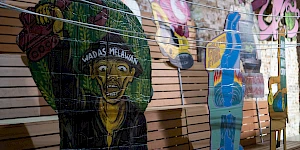
‘Gathering into the Maelstrom’ is curated by Institute of Radical Imagination and Sale Docks within the framework of Museum of the Commons.
-
8 Jun 2024 –22 Sep M HKAThe Lives of Animals
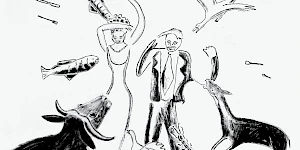
‘The Lives of Animals’ is a group exhibition at M HKA that looks at the subject of animals from the perspective of the visual arts.
-
5 Jun 2024 –13 Apr 2025 SALTWarm Earth Sounds for Plants and the People Who Love Them
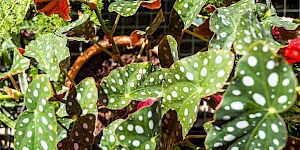
‘Warm Earth Sounds for Plants and the People Who Love Them’ is a series of sound installations by Özcan Ertek, Fulya Uçanok, Ömer Sarıgedik, Zeynep Ayşe Hatipoğlu, and Passepartout Duo, presented at Salt in Istanbul.
-
5 Jun 2024 –28 Jul SALTSound of Green
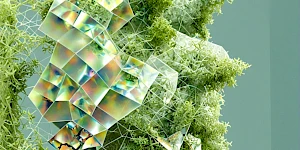
‘Warm Earth Sounds for Plants and the People Who Love Them’ at Salt in Istanbul begins on 5 June, World Environment Day, with Özcan Ertek’s installation ‘Sound of Green’.
-
4 Sep 2024 –30 Sep Museo Reina SofiaOpen Call: Research Residencies
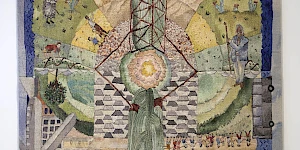
The Centro de Estudios of Museo Reina Sofía releases its open call for research residencies as part of the climate thread within the Museum of the Commons programme.
-
27 Sep 2024 HDK-ValandClimate Forum II
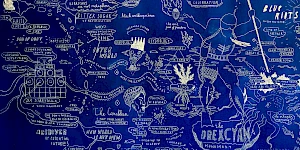
The Climate Forum is a series of online meetings hosted by HDK-Valand within L’Internationale’s Museum of the Commons programme. The series builds upon earlier research resulting in the (2022) book Climate: Our Right to Breathe and reaches toward emerging change practices.
-
18 Oct 2024 HDK-ValandClimate Forum III
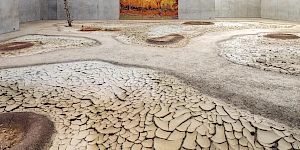
The Climate Forum is a series of online meetings hosted by HDK-Valand within L’Internationale’s Museum of the Commons programme. The series builds upon earlier research resulting in the (2022) book Climate: Our Right to Breathe and reaches toward emerging change practices.
-
23 Oct 2024 MACBAThe Open Kitchen. Map of edible tensions
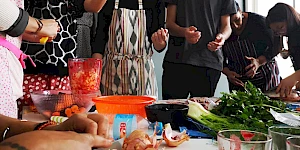
with Marina Monsonís, Paisanaje and Ruralitzem
The MACBA Kitchen is a working group situated against the backdrop of ecosocial crisis. Participants in the group aim to highlight the importance of intuitively imagining an ecofeminist kitchen, and take a particular interest in the wisdom of individuals, projects and experiences that work with dislocated knowledge in relation to food sovereignty. -
11 Dec 2024 MACBAThe Open Kitchen. Food networks in an emergency situation
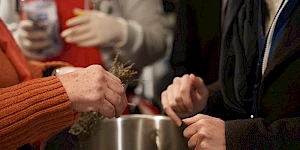
with Marina Monsonís, the Cabanyal cooking, Resistencia Migrante Disidente and Assemblea Catalana per la Transició Ecosocial
The MACBA Kitchen is a working group situated against the backdrop of ecosocial crisis. Participants in the group aim to highlight the importance of intuitively imagining an ecofeminist kitchen, and take a particular interest in the wisdom of individuals, projects and experiences that work with dislocated knowledge in relation to food sovereignty. -
10 Oct 2025 –18 Jan 2026 Kyiv Biennial 2025
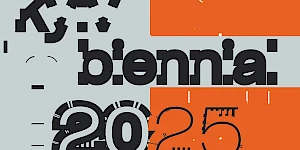
L’Internationale Confederation is proud to co-organise this years’ edition of the Kyiv Biennial.
-
13 Jun 2025 –21 Sep M HKAThe Geopolitics of Infrastructure

The exhibition The Geopolitics of Infrastructure presents the work of a generation of artists bringing contemporary perspectives on the particular topicality of infrastructure in a transnational, geopolitical context.
-
10 Nov 2025 –16 Nov MACBAMuseo Reina SofiaSchool of Common Knowledge 2025
The second iteration of the School of Common Knowledge will bring together international participants, faculty from the confederation and situated organizations in Barcelona and Madrid.
-
16 Apr 2025 –10 Aug SALTThe Lives of Animals, Salt Beyoğlu
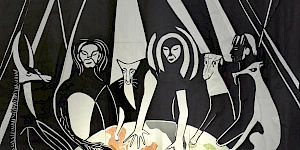
‘The Lives of Animals’ is a group exhibition at Salt that looks at the subject of animals from the perspective of the visual arts.
-
14 Feb 2025 –13 Apr SALTPlant(ing) Entanglements

The series of sound installations Warm Earth Sounds for Plants and the People Who Love Them ends with Fulya Uçanok’s sound installation Plant(ing) Entanglements.
-
2025 Museo Reina SofiaSchool of Commoning Practices: Publication
Students, teachers and organizations of self-managed language and cultural mediation schools for migrants in Florence, Athens and Madrid share their experiences.
-
1 Jan 2025 –31 Dec Museo Reina SofiaSustainable Art Production. Research Residencies
The projects selected in the first call of the Sustainable Art Practice research residencies are A hores d'ara. Experiences and memory of the defense of the Huerta valenciana through its archive by the group of researchers Anaïs Florin, Natalia Castellano and Alba Herrero; and Fundamental Errors by the filmmaker and architect Mauricio Freyre.
-
28 May 2025 –27 Jun Museo Reina SofiaMACBAOpen Call – School of Common Knowledge 2025
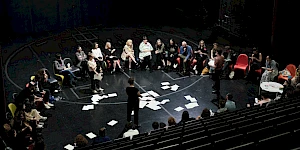
Museo Reina Sofía and MACBA Museu d’Art Contemporani de Barcelona (MACBA) invite applications for the 2025 iteration of the School of Common Knowledge, which will take place in Madrid and Barcelona 11-16 November 2025. The School of Common Knowledge (SCK) draws on the network, knowledge and experience of L’Internationale. Its ambition is to be both nomadic and situated, looking at specific cultural and geopolitical situations while exploring their relations and interdependencies with the rest of the world. This year, the SCK program focuses on the contested and dynamic notions of rooting and uprooting in the framework of present – colonial, migrant, situated, and ecological – complexities. Building on the legacy of the Glossary of Common Knowledge and the current European program Museum of the Commons, the SCK invites participants to reflect on the power of language to shape our understanding of art and society through a co-learning methodology.
-
7 Jul 2025 –11 Jul IMMANCADSummer School: Landscape (post) Conflict
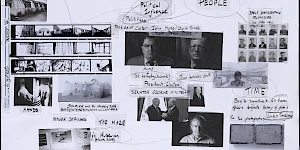
The Irish Museum of Modern Art and the National College of Art and Design, as part of L’internationale Museum of the Commons, is hosting a Summer School in Dublin between 7-11 July 2025. This week-long programme of lectures, discussions, workshops and excursions will focus on the theme of Landscape (post) Conflict and will feature a number of national and international artists, theorists and educators including Jill Jarvis, Amanda Dunsmore, Yazan Kahlili, Zdenka Badovinac, Marielle MacLeman, Léann Herlihy, Slinko, Clodagh Emoe, Odessa Warren and Clare Bell.
-
5 Sep 2025 HDK-ValandClimate Forum IV
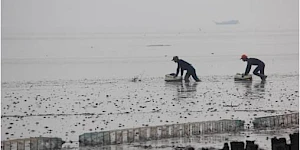
The Climate Forum is a series of online meetings hosted by HDK-Valand within L’Internationale’s Museum of the Commons programme. The series builds upon earlier research resulting in the (2022) book Climate: Our Right to Breathe and reaches toward emerging change practices.
-
8 Oct 2025 –24 Jun 2026 Museo Reina SofiaStudy Group: Aesthetics of Peace and Desertion Tactics
In a present marked by rearmament, war, genocide, and the collapse of the social contract, this study group aims to equip itself with tools to, on one hand, map genealogies and aesthetics of peace – within and beyond the Spanish context – and, on the other, analyze strategies of pacification that have served to neutralize the critical power of peace struggles.
-
21 Oct 2025 –25 Oct MSU ZagrebOctober School: Moving Beyond Collapse: Reimagining Institutions
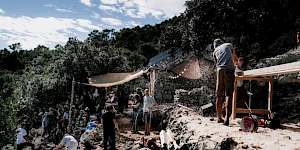
The October School at ISSA will offer space and time for a joint exploration and re-imagination of institutions combining both theoretical and practical work through actually building a school on Vis. It will take place on the island of Vis, off of the Croatian coast, organized under the L’Internationale project Museum of the Commons by the Museum of Contemporary Art in Zagreb and the Island School of Social Autonomy (ISSA). It will offer a rich program consisting of readings, lectures, collective work and workshops, with Adania Shibli, Kristin Ross, Robert Perišić, Saša Savanović, Srećko Horvat, Marko Pogačar, Zdenka Badovinac, Bojana Piškur, Theo Prodromidis, Ovidiu Ţichindeleanu, Progressive International, Naan-Aligned cooking, and others.
-
3 Oct 2025 –18 Jan 2026 MSN WarsawNear East, Far West. Kyiv Biennial 2025
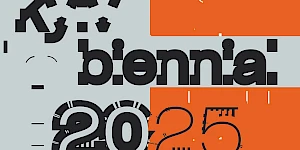
The main exhibition of the 6th Kyiv Biennial 2025, titled Near East, Far West, is organized by a consortium of curators from L’Internationale. It features seven new artists’ commissions, alongside works from the collections of member institutions of L’Internationale and a number of other loans.
-
9 Oct 2025 –11 Jan 2026 M HKAHomelands and Hinterlands. Kyiv Biennial 2025
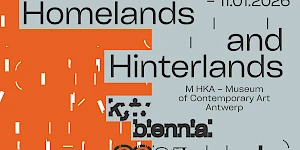
Following the trans-national format of the 2023 edition, the Kyiv Biennial 2025 will again take place in multiple locations across Europe. Museum of Contemporary Art Antwerp (M HKA) presents a stand-alone exhibition that acts also as an extension of the main biennial exhibition held at the newly-opened Museum of Modern Art in Warsaw (MSN).
In reckoning with the injustices and atrocities committed by the imperialisms of today, Kyiv Biennial 2025 reflects with historical consciousness on failed solidarities and internationalisms. It does this across an axis that the curators describe as Middle-East-Europe, a term encompassing Central Eastern Europe, the former-Soviet East and the Middle East.
-
23 Oct 2025 HDK-ValandMA Forum in collaboration with LIO: Nour Shantout
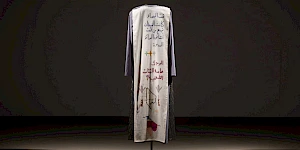
In this artist talk, Nour Shantout will present Searching for the New Dress, an ongoing artistic research project that looks at Palestinian embroidery in Shatila, a Palestinian refugee camp in Lebanon. Welcome!
-
16 Oct 2025 MACBAPEI Obert: Bodies of Evidence. A lecture by Ido Nahari and Adam Broomberg
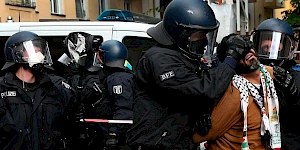
In the second day of Open PEI, writer and researcher Ido Nahari and artist, activist and educator Adam Broomberg bring us Bodies of Evidence, a lecture that analyses the circulation and functioning of violent images of past and present genocides. The debate revolves around the new fundamentalist grammar created for this documentation.
-
23 Oct 2025 –7 Feb 2026 Everything for Everybody. Kyiv Biennial 2025
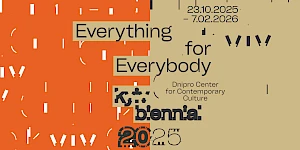
As one of five exhibitions comprising the 6th Kyiv Biennial 2025, ‘Everything for Everybody’ takes place in the Ukraine, at the Dnipro Center for Contemporary Culture.
-
24 Oct 2025 –28 Dec In a Grandiose Sundance, in a Cosmic Clatter of Torture. Kyiv Biennial 2025
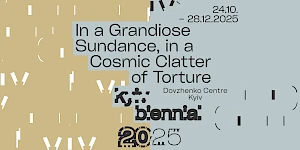
As one of five exhibitions comprising the 6th Kyiv Biennial 2025, ‘In a Grandiose Sundance, in a Cosmic Clatter of Torture’ takes place at the Dovzhenko Centre in Kyiv.
-
15 Nov 2025 MACBASchool of Common Knowledge: Fred Moten
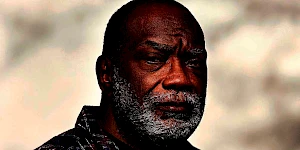
Fred Moten gives the lecture Some Prœposicions (On, To, For, Against, Towards, Around, Above, Below, Before, Beyond): the Work of Art. As part of the Project a Black Planet exhibition, MACBA presents this lecture on artworks and art institutions in relation to the challenge of blackness in the present day.
-
1 Nov 2025 –28 Feb 2026 MACBAVisions of Panafrica. Film programme
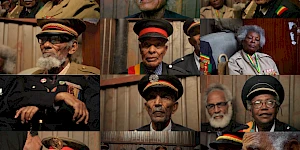
Visions of Panafrica is a film series that builds on the themes explored in the exhibition Project a Black Planet: The Art and Culture of Panafrica, bringing them to life through the medium of film. A cinema without a geographical centre that reaffirms the cultural and political relevance of Pan-Africanism.
-
6 Nov 2025 MACBAFarah Saleh. Balfour Reparations (2025–2045)
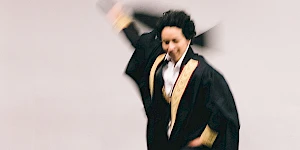
As part of the Project a Black Planet exhibition, MACBA is co-organising Balfour Reparations (2025–2045), a piece by Palestinian choreographer Farah Saleh included in Hacer Historia(s) VI (Making History(ies) VI), in collaboration with La Poderosa. This performance draws on archives, memories and future imaginaries in order to rethink the British colonial legacy in Palestine, raising questions about reparation, justice and historical responsibility.
-
5 Nov 2025 MACBAProject a Black Planet: The Art and Culture of Panafrica OPENING EVENT
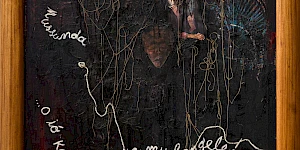
A conversation between Antawan I. Byrd, Adom Getachew, Matthew S. Witkovsky and Elvira Dyangani Ose. To mark the opening of Project a Black Planet: The Art and Culture of Panafrica, the curatorial team will delve into the exhibition’s main themes with the aim of exploring some of its most relevant aspects and sharing their research processes with the public.
-
3 Nov 2025 MACBAPalestine Cinema Days 2025: Al-makhdu’un (1972)
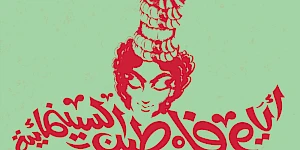
Since 2023, MACBA has been part of an international initiative in solidarity with the Palestine Cinema Days film festival, which cannot be held in Ramallah due to the ongoing genocide in Palestinian territory. During the first days of November, organizations from around the world have agreed to coordinate free screenings of a selection of films from the festival. MACBA will be screening the film Al-makhdu’un (The Dupes) from 1972.
-
31 Oct 2025 Museo Reina SofiaCinema Commons #1: On the Art of Occupying Spaces and Curating Film Programmes
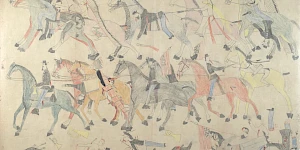
On the Art of Occupying Spaces and Curating Film Programmes is a Museo Reina Sofía film programme overseen by Miriam Martín and Ana Useros, and the first within the project The Cinema and Sound Commons. The activity includes a lecture and two films screened twice in two different sessions: John Ford’s Fort Apache (1948) and John Gianvito’s The Mad Songs of Fernanda Hussein (2001).
-
11 Nov 2025 –6 Jan 2026 Vertical Horizon. Kyiv Biennial 2025

As one of five exhibitions comprising the 6th Kyiv Biennial 2025, ‘Vertical Horizon’ takes place at the Lentos Kunstmuseum in Linz, at the initiative of tranzit.at.
-
20 Nov 2025 HDK-ValandMA Forum in collaboration with LIO: Cathryn Klasto

In this MA Forum we welcome artist and researcher Cathryn Klasto. This talk will share some working insight into Klasto’s ongoing book project ‘Space Trekking’. The book is a collection of visual essays which tries to reveal the relationship between artistic research, ethics and interstellar spatial phenomena storied within the Star Trek universe.
-
28 Nov 2025 –29 Nov International Day of Solidarity with the Palestinian People: Activities
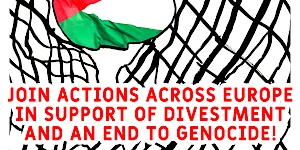
To mark International Day of Solidarity with the Palestinian People and in conjunction with our collective text, we, the cultural workers of L'Internationale have compiled a list of programmes, actions and marches taking place accross Europe. Below you will find programmes organized by partner institutions as well as activities initaited by unions and grass roots organisations which we will be joining.
This is a live document and will be updated regularly.
-
18 Dec 2025 HDK-ValandMA Forum in collaboration with LIO: Adam Broomberg
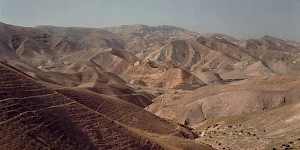
In this MA Forum we welcome artist Adam Broomberg. In his lecture he will focus on two photographic projects made in Israel/Palestine twenty years apart. Both projects use the medium of photography to communicate the weaponization of nature.
-
12 Dec 2025 MACBAPEI Obert: Until Liberation: A Collective Reading and Listening Session by Learning Palestine
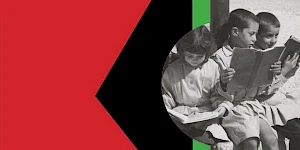
PEI Obert presents a collective session with Learning Palestine. At this historical juncture – amid the ongoing genocide in Gaza and the censorship and repression of all things Palestinian – Learning Palestine invites us to gather not only in refusal but also in affirmation.
Related contributions and publications
-
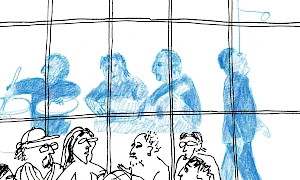
Dispatch: From the Eleventh Session of Non-Western Technologies for the Good Life
Ana Kun7 May 2024 Land RelationsSchoolstranzit.ro -
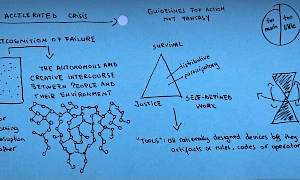
Dispatch: Harvesting Non-Western Epistemologies (ongoing)
Adelina Luft7 May 2024 Land RelationsSchoolsClimatetranzit.ro -
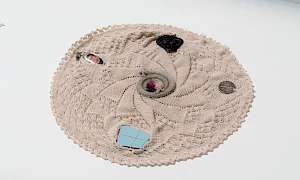
Decolonial aesthesis: weaving each other
Charles Esche, Rolando Vázquez, Teresa Cos Rebollo9 Nov 2023 Land RelationsClimate -
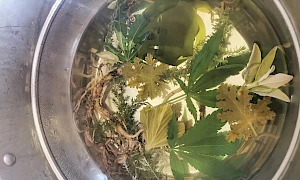
Climate Forum I – Readings
Nkule Mabaso13 Nov 2023 EN esLand RelationsClimateHDK-Valand -
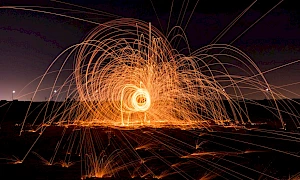
…and the Earth along. Tales about the making, remaking and unmaking of the world.
Martin Pogačar14 Nov 2023 Land RelationsClimatePast in the Present -
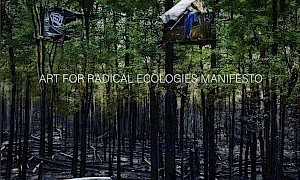
Art for Radical Ecologies Manifesto
Institute of Radical Imagination15 Nov 2023 Land RelationsClimateInstitute of Radical Imagination -
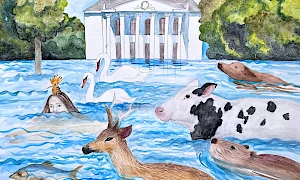
Pollution as a Weapon of War
Svitlana Matviyenko8 Jun 2023 Climate -
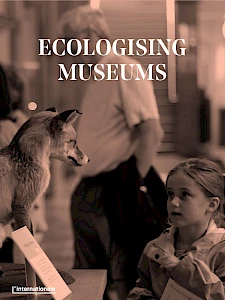
Ecologising Museums
2016 Land Relations -
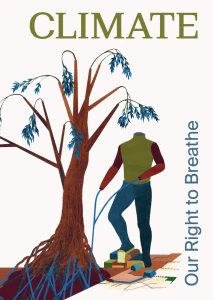
Climate: Our Right to Breathe
2022 Land RelationsClimate -
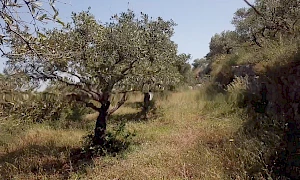
A Letter Inside a Letter: How Labor Appears and Disappears
Marwa Arsanios24 Oct 2023 Land RelationsClimate -
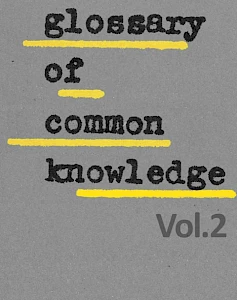
Glossary of Common Knowledge, Vol. 2
2022 Schools -
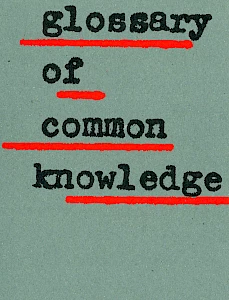
Glossary of Common Knowledge
2018 Schools -
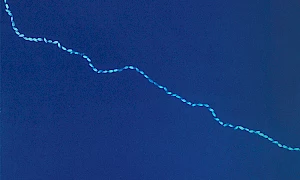
Seeds Shall Set Us Free II
Munem Wasif20 Oct 2023 Land RelationsClimate -
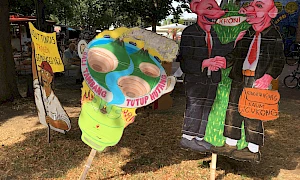
Prácticas lumbung para resistir y colaborar desde el arte
Constanza Yévenes Biénzobas30 Aug 2023 EN eslumbungSituated OrganizationsMuseo Reina Sofia -
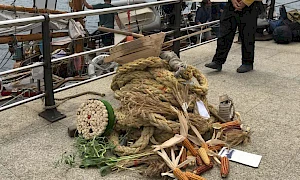
Algunos términos que guían a lumbung press: Definiendo “edición”
Erick Beltrán27 Apr 2023 EN eslumbungSituated OrganizationsMACBA -
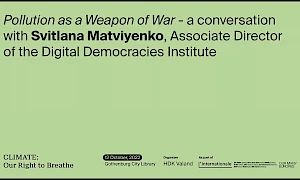
Pollution as a Weapon of War – a conversation with Svitlana Matviyenko
Svitlana Matviyenko12 Oct 2022 ClimateClimate book launchHDK-Valand -
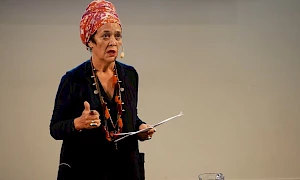
Françoise Vergès – Breathing: A Revolutionary Act
Françoise Vergès12 Oct 2022 ClimateClimate book launchHDK-Valand -
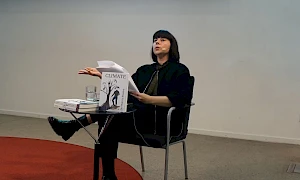
Ana Teixeira Pinto – Fire and Fuel: Energy and Chronopolitical Allegory
Ana Teixeira Pinto12 Oct 2022 ClimateClimate book launchHDK-Valand -
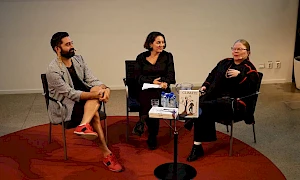
Watery Histories – a conversation between artists Katarina Pirak Sikku and Léuli Eshrāghi
Léuli Eshrāghi, Katarina Pirak Sikku12 Oct 2022 ClimateClimate book launchHDK-Valand -
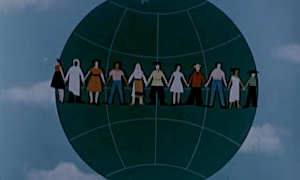
The Veil of Peace
Ovidiu Ţichindeleanu31 Oct 2023 Past in the Presenttranzit.ro -
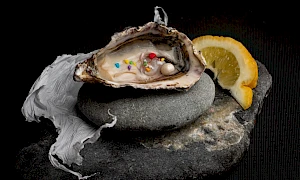
Discomfort at Dinner: The role of food work in challenging empire
Mary Fawzy29 Feb 2024 Land RelationsSituated Organizations -

Indra's Web
Vandana Singh1 Mar 2024 Land RelationsPast in the PresentClimate -
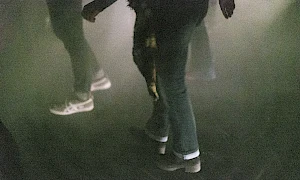
Mix tape: Let's funk up all genders!
Materia Hache / Others to the Front19 Mar 2024 EN esSonic and Cinema CommonsSituated OrganizationsMuseo Reina Sofia -
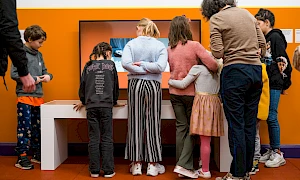
Towards Collective Learning, or, Decompartmentalizing Education
María Berríos, Fran MM Cabeza de Vaca, Yolande Zola Zoli van der Heide, Nick Aikens4 Apr 2024 SchoolsSituated Organizations -
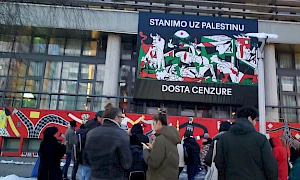
The Silence Has Been Unfolding For Too Long
The Free Palestine Initiative Croatia11 Apr 2024 InternationalismsPast in the PresentSituated OrganizationsInstitute of Radical ImaginationMSU Zagreb -
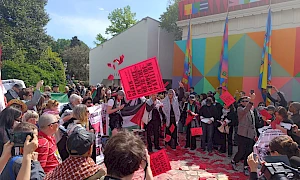
En dag kommer friheten att finnas
Françoise Vergès, Maddalena Fragnito19 Apr 2024 EN svInternationalismsLand RelationsClimateInstitute of Radical Imagination -
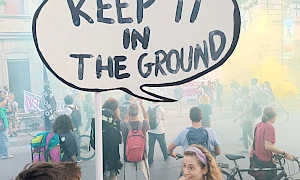
Art and Materialisms: At the intersection of New Materialisms and Operaismo
Emanuele Braga1 May 2024 Land RelationsClimateInstitute of Radical Imagination -
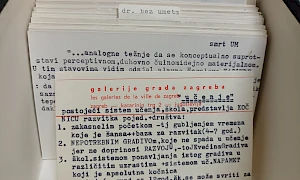
Reading list: School of Common Knowledge 2024
School of Common Knowledge21 May 2024 SchoolsSituated OrganizationsMSU ZagrebModerna galerijaZRC SAZU -
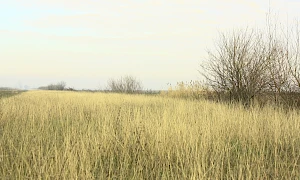
Dispatch: Practicing Conviviality
Ana Barbu28 May 2024 ClimateSchoolsLand Relationstranzit.ro -
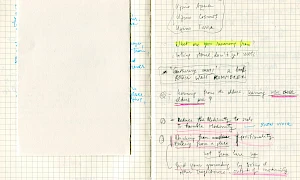
Dispatch: Notes on Separation and Conviviality
Raluca Popa28 May 2024 Land RelationsSchoolsSituated OrganizationsClimatetranzit.ro -
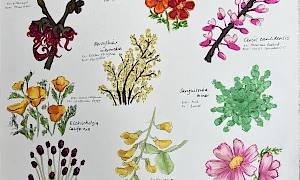
Dispatch: The Arrow of Time
Catherine Morland28 May 2024 Climatetranzit.ro -
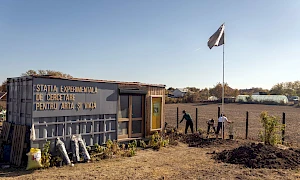
To Build an Ecological Art Institution: The Experimental Station for Research on Art and Life
Ovidiu Ţichindeleanu, Raluca Voinea31 May 2024 Land RelationsClimateSituated Organizationstranzit.ro -
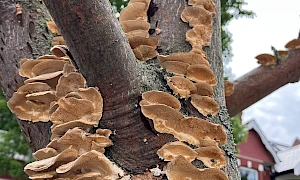
Dispatch: A Shared Dialogue
Irina Botea Bucan, Jon Dean4 Jun 2024 Land RelationsSchoolsClimatetranzit.ro -
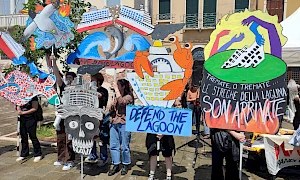
Art, Radical Ecologies and Class Composition: On the possible alliance between historical and new materialisms
Marco Baravalle12 Jun 2024 Land RelationsClimateInstitute of Radical Imagination -
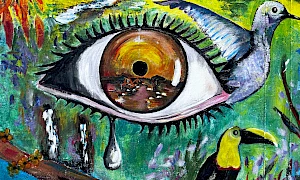
‘Territorios en resistencia’, Artistic Perspectives from Latin America
Rosa Jijón & Francesco Martone (A4C), Sofía Acosta Varea, Boloh Miranda Izquierdo, Anamaría Garzón26 Jun 2024 Land RelationsClimateInstitute of Radical Imagination -
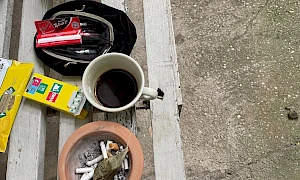
Dispatch: In between the lessons. Staying together in uncertain times, laughing in the face of trouble, and disobeying; the future belongs to us
Antonela Solenički19 Jun 2024 SchoolsSituated OrganizationsMSU ZagrebModerna galerijaZRC SAZU -
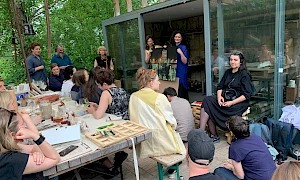
Dispatch: The Commonsverse and Situated Organisations – or why the era of big institutions will come to an end
Denise Pollini19 Jun 2024 SchoolsSituated OrganizationsMSU ZagrebModerna galerijaZRC SAZU -
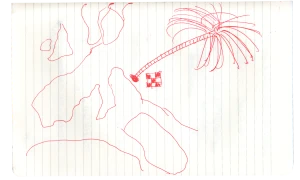
Dispatch: A Buriti Tree
Lucas Pretti10 Jul 2024 SchoolsSituated OrganizationsMSU ZagrebModerna galerijaZRC SAZU -
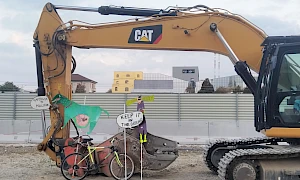
Unhinging the Dual Machine: The Politics of Radical Kinship for a Different Art Ecology
Federica Timeto1 Jul 2024 Land RelationsClimateInstitute of Radical Imagination -
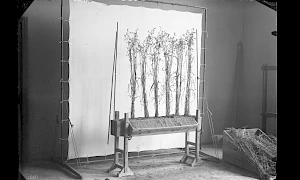
Cultivating Abundance
Åsa Sonjasdotter28 Jun 2024 Land RelationsClimatePast in the Present -
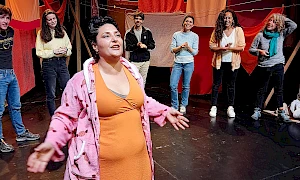
Poner el nombre a una causa en tierra extraña
Dagmary Olívar Graterol, Paola de la Vega Velastegui5 Jul 2024 EN esSchoolsSituated OrganizationsMuseo Reina Sofia -
Dispatch: To whom it may concern – the voice of the censor and re-calibrating words as an act of survival
Anonymous27 Jun 2024 SchoolsSituated OrganizationsMSU ZagrebModerna galerijaZRC SAZU -
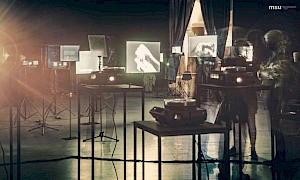
Rethinking Comradeship from a Feminist Position
Leonida Kovač18 Jul 2024 SchoolsInternationalismsSituated OrganizationsMSU ZagrebModerna galerijaZRC SAZU -
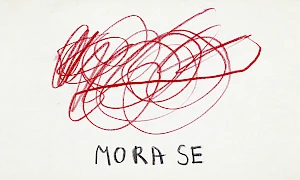
Reading list - Summer School: Our Many Easts
Summer School - Our Many Easts6 Sep 2024 SchoolsPast in the PresentModerna galerija -
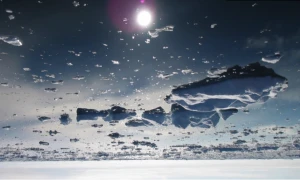
Climate Forum II – Readings
Nick Aikens, Nkule Mabaso25 Sep 2024 Land RelationsClimateHDK-Valand -
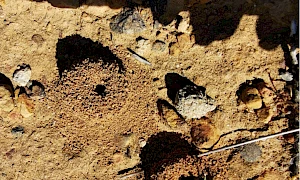
Klei eten is geen eetstoornis
Zayaan Khan17 Sep 2024 EN nl frLand RelationsClimatePast in the Present -
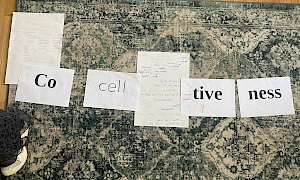
Dispatch: ‘I don't believe in revolution, but sometimes I get in the spirit.’
Megan Hoetger20 Sep 2024 SchoolsPast in the Present -
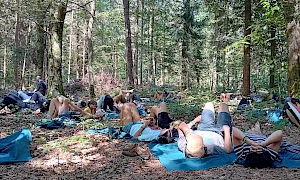
Dispatch: Notes on (de)growth from the fragments of Yugoslavia's former alliances
Ava Zevop24 Sep 2024 SchoolsPast in the Present -
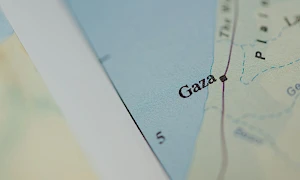
Glöm ”aldrig mer”, det är alltid redan krig
Martin Pogačar3 Oct 2024 EN svLand RelationsPast in the Present -
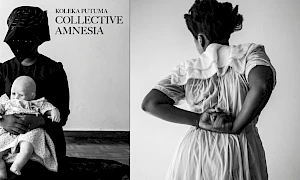
Graduation
Koleka Putuma10 Oct 2024 Land RelationsClimate -
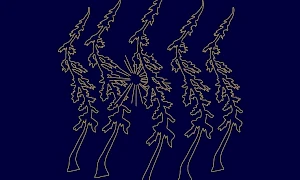
Depression
Gargi Bhattacharyya10 Oct 2024 Land RelationsClimate -
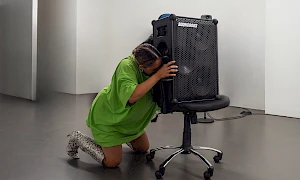
Climate Forum III – Readings
Yolande Zola Zoli van der Heide11 Oct 2024 Land RelationsClimate -
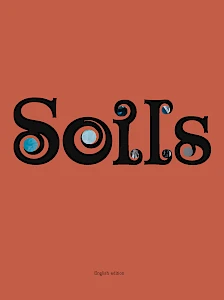
Soils
2024 Land RelationsClimateVan Abbemuseum -
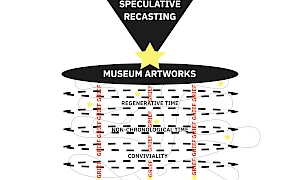
Dispatch: There is grief, but there is also life
Cathryn Klasto1 Nov 2024 Land RelationsClimate -
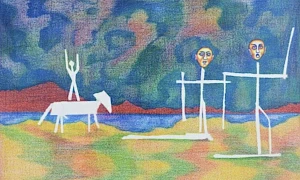
Beyond Distorted Realities: Palestine, Magical Realism and Climate Fiction
Sanabel Abdel Rahman14 Nov 2024 EN trInternationalismsPast in the PresentClimate -
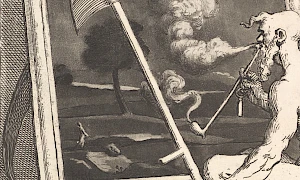
Dispatch: Care Work is Grief Work
Abril Cisneros Ramírez18 Nov 2024 Land RelationsClimate -

Collective Study in Times of Emergency. A Roundtable
Nick Aikens, Sara Buraya Boned, Charles Esche, Martin Pogačar, Ovidiu Ţichindeleanu, Ezgi Yurteri15 Nov 2024 InternationalismsPast in the PresentSituated Organizations -
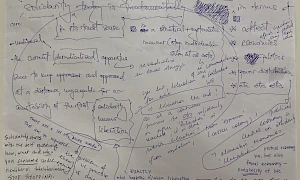
Dispatch: A Silent Conversation
Anela Dumonjić20 Dec 2024 SchoolsModerna galerija -
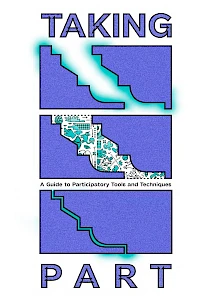
Taking Part. A Guide to Participatory Tools and Techniques
2024 EN esSchoolsSituated OrganizationsMuseo Reina Sofia -

Atención: participar en el Museo de los Comunes
Fran MM Cabeza de Vaca6 Mar 2025 EN esSchoolsSituated Organizations -
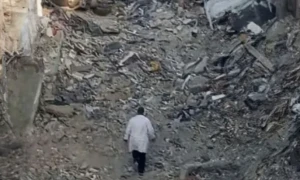
S come Silenzio
Maddalena Fragnito13 Jan 2025 EN itInternationalismsSituated Organizations -
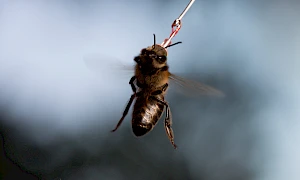
Reading List: Lives of Animals
Joanna Zielińska29 Apr 2025 Land RelationsClimateM HKA -
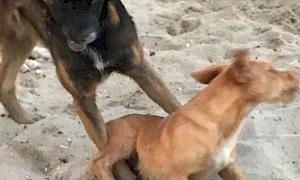
Sonic Room: Translating Animals
Joanna Zielińska7 May 2025 Land RelationsClimate -
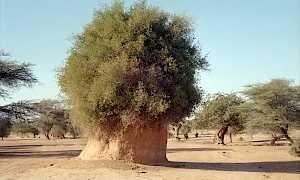
Encounters with Ecologies of the Savannah – Aadaajii laɗɗe
Katia Golovko19 May 2025 Land RelationsClimate -
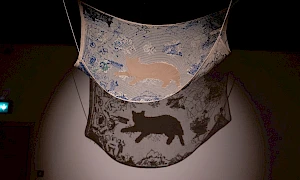
Trans Species Solidarity in Dark Times
Fahim Amir27 May 2025 EN trLand RelationsClimate -
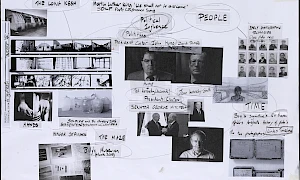
Reading List: Summer School, Landscape (post) Conflict
Summer School - Landscape (post) Conflict28 Jun 2025 SchoolsLand RelationsPast in the PresentIMMANCAD -
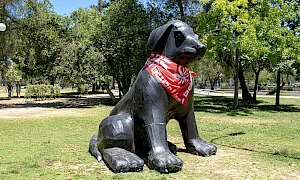
Solidarity is the Tenderness of the Species – Cohabitation its Lived Exploration
Fahim Amir8 Jul 2025 EN trLand Relations -
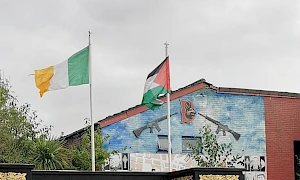
Dispatch: Reenacting the loop. Notes on conflict and historiography
Giulia Terralavoro16 Jul 2025 SchoolsLand RelationsIMMANCAD -
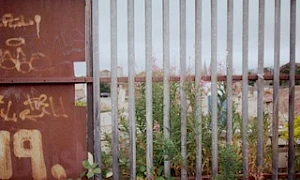
Dispatch: Haunting, cataloging and the phenomena of disintegration
Coco Goran17 Jul 2025 SchoolsLand RelationsIMMANCAD -
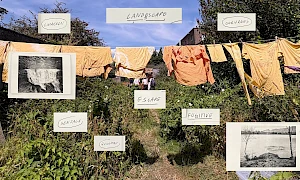
Dispatch: Landescape – bending words or what a new terminology on post-conflict could be
Amanda Carneiro17 Jul 2025 SchoolsLand RelationsIMMANCAD -
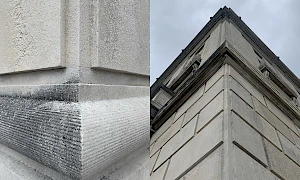
Dispatch: Landscape (Post) Conflict – Mediating the In-Between
Janine Davidson28 Aug 2025 SchoolsLand RelationsIMMANCAD -
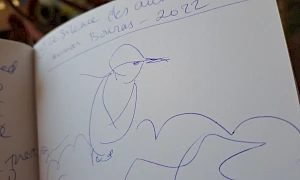
Dispatch: Excerpts from the six days and sixty one pages of the black sketchbook
Sabine El Chamaa27 Aug 2025 SchoolsLand RelationsIMMANCAD -
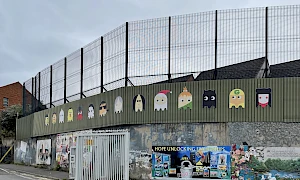
Dispatch: Withstanding. Notes on the material resonance of the archive and its practice
Giulio Gonella4 Sep 2025 SchoolsLand RelationsIMMANCAD -
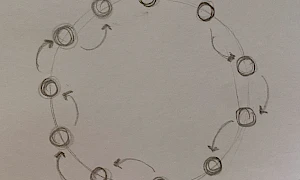
Climate Forum IV – Readings
Merve Bedir29 Aug 2025 Land RelationsHDK-Valand -
Land Relations: Editorial
L'Internationale Online Editorial Board2025 Land Relations -
Schools: Editorial
L'Internationale Online Editorial Board2025 Schools -
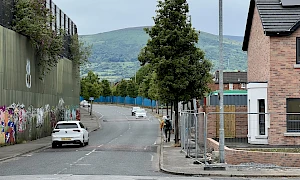
Dispatch: Between Pages and Borders – (post) Reflection on Summer School ‘Landscape (post) Conflict’
Daria Riabova25 Sep 2025 SchoolsLand RelationsIMMANCAD -
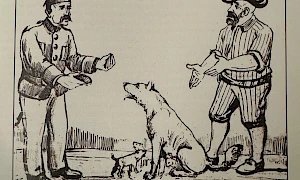
Between Care and Violence: The Dogs of Istanbul
Mine Yıldırım30 Sep 2025 Land Relations -
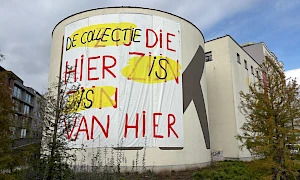
Statement in support of M HKA
L’Internationale Confederation9 Oct 2025 Statements and editorialsSituated Organizations -
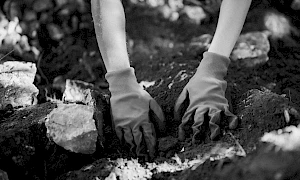
Reading list: October School. Reimagining Institutions
October School12 Nov 2025 SchoolsSituated OrganizationsClimateMSU Zagreb -
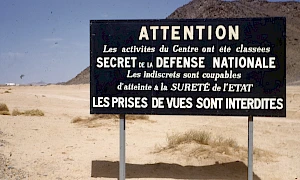
The Debt of Settler Colonialism and Climate Catastrophe
Nataša Petrešin-Bachelez, Olivier Marbœuf, Samia Henni, Marie-Hélène Villierme and Mililani Ganivet19 Nov 2025 Land Relations -
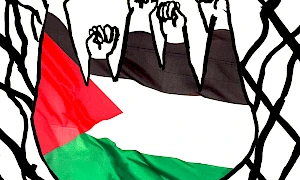
Cultural Workers of L’Internationale mark International Day of Solidarity with the Palestinian People
Cultural Workers of L’Internationale26 Nov 2025 EN es pl roInternationalismsSituated OrganizationsPast in the PresentStatements and editorials -
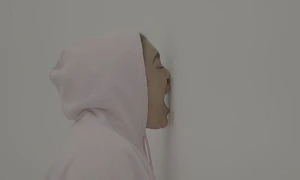
We, the Heartbroken, Part II: A Conversation Between G and Yolande Zola Zoli van der Heide
G, Yolande Zola Zoli van der Heide8 Dec 2025 Land Relations -
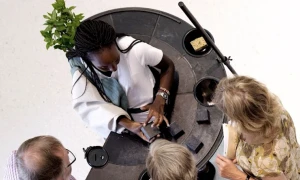
Poetics and Operations
Otobong Nkanga, Maya Tounta15 Dec 2025 Land Relations -
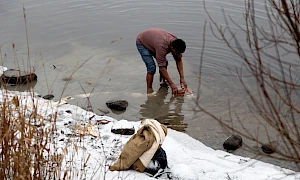
Breaths of Knowledges
Robel Temesgen7 Dec 2025 ClimateLand Relations -
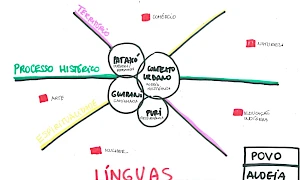
Some Things We Learnt: Working with Indigenous culture from within non-Indigenous institutions
Sandra Ara Benites, Rodrigo Duarte, Pablo Lafuente9 Dec 2025 Land Relations -
How to Keep On Without Knowing What We Already Know, Or, What Comes After Magic Words and Politics of Salvation
Mônica Hoff11 Jun 2022 Climate -
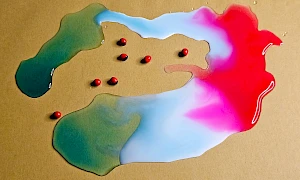
Conversation avec Keywa Henri
Keywa Henri, Anaïs Roesch17 Dec 2025 EN frLand Relations -
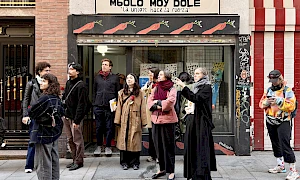
Dispatch: Notes On Generosity
Amanda Macedo Macedo19 Dec 2025 SchoolsMuseo Reina SofiaMACBA -
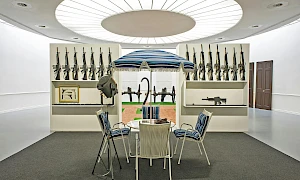
The Fifth Estate: On Museums, Public Imagination and the Vanishing Space for Collectivity
Philippe Pirotte, Els Silvrants-Barclay18 Dec 2025 EN nlSituated OrganizationsM HKA -

Mgo Ngaran, Puwason (Manobo language) Sa Kada Ngalan, Lasang (Sugbuanon language) Sa Bawat Ngalan, Kagubatan (Filipino) For Every Name, a Forest (English)
Kulagu Tu Buvongan28 Dec 2025 Land Relations -
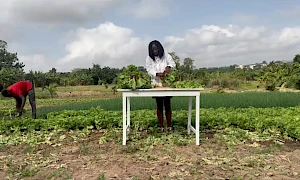
Making Ground
Kasangati Godelive Kabena, Nkule Mabaso7 Jan 2026 Land Relations -
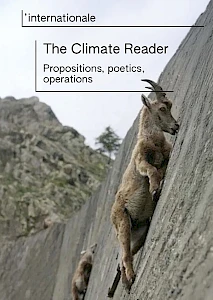
The Climate Reader: Propositions, poetics, operations
2026 Land RelationsClimateHDK-Valand -

Can the artworld strike for climate? Three possible answers
Jakub Depczyński11 Jan 2026 Land Relations